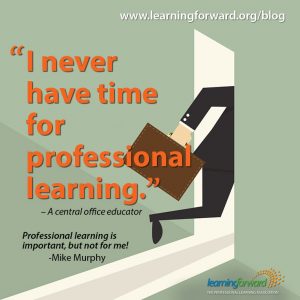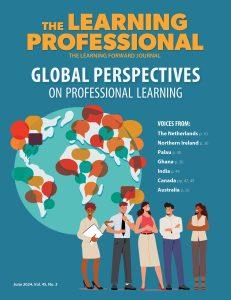Leadership
People who know Deborah Jackson, Learning Forward board of trustees president, know how passionate she is about education. In this post, she reflects on how her path has not always been predictable and shares a few of the more surprising moments in her life as a learning leader.
Research has confirmed many times that leadership is second only to teaching in influencing student achievement. What do system and school leaders do that teachers value most and identify as most helpful in their efforts to ensure high-quality literacy and standards-based instruction for all students?
I was about to facilitate professional learning with school leaders in a large, urban school district a few months ago. The topics had been planned, the content and process had been reviewed, and I was ready to go. Right before my time started, I had the opportunity to meet the central office educator who was in the room and, according to the organizational chart, in charge of school improvement, instruction, and student performance.
How do you use the power of words to spark positive change? How are words being used in your setting to create a culture of caring? Words matter. They can offer perspective, insight, and understanding. Words can bring encouragement and hope.
The Learning Forward team had a very successful weekend in Toronto with our Academy cohorts, affiliates, institutes, and board meetings. Our Academy 2017 cohort got off to a great start, and many of the Academy 2016 members shared with us how much their learning is starting to gel. The affiliate leaders appreciated the choices of learning opportunities they had throughout the weekend, and several institute participants shared with me that the learning they experienced was both timely and impactful.
Time after time, conversations with decision makers in successful organizations reveal the high value they place on the relationships they try to build among people. The focus on relationships is not to be taken lightly. Toxic relationships diminish capacity (Lewin and Regine, The Soul at Work, 1999). With multiple, increasingly complex initiatives, leaders in successful organizations generate their best work and results from the interactions they have with the people who work there. To create new solutions for challenging problems, they have to have these relationships to enlist the ability and creativity of the people in their schools.





